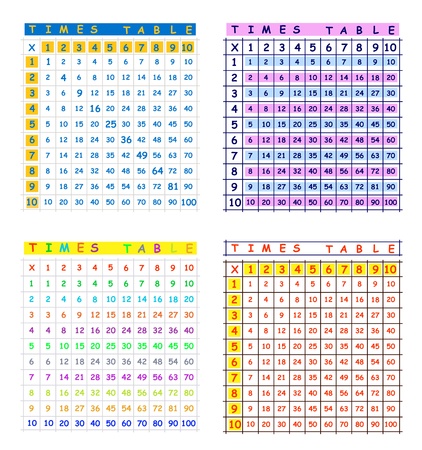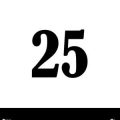An Introduction to British Astrology
When delving into the fascinating world of astrology, one cannot overlook the unique tradition that has flourished within Britain for centuries. British astrology is not merely a regional adaptation of celestial interpretation but a discipline enriched by its own distinctive features, cultural nuances, and historical tapestry. The roots of astrology in Britain stretch deep into antiquity, weaving through Druidic practices, medieval scholarship, and the intellectual salons of the Enlightenment era. Unlike other astrological traditions, British astrology is shaped profoundly by the islands’ temperament—stoic yet whimsical, logical yet steeped in myth. It has informed everything from royal court decisions to everyday folk wisdom, often appearing in classic literature and public discourse. This guide seeks to illuminate how British astrology stands apart: its symbolism grounded in the rhythms of British seasons, its charts reflecting local latitude and folklore, and its methods bearing the stamp of renowned British astrologers past and present. By appreciating this heritage and context, readers can approach their birth chart with an understanding not only of planetary alignments but also of the rich narrative that underpins astrological practice in Britain.
2. The Essential Components of a Birth Chart
In the grand tapestry of British astrology, a birth chart—also known as a natal chart or horoscope—is a celestial blueprint drawn at the exact moment and location of one’s birth. To truly decipher its intricate meaning, it is vital to understand its primary components: planets, houses, signs, and aspects. Each plays an indispensable role within the uniquely British astrological tradition, shaped by centuries of classical interpretation and empirical observation.
Planets: The Cosmic Actors
Planets are considered the actors in the astrological drama, each representing distinct drives and principles within the psyche. In British astrology, particular emphasis is placed on their traditional rulerships and dignities, often reflecting the philosophical legacy of William Lilly and other eminent astrologers from these isles. For example, Saturn is seen not merely as a harbinger of restriction but also as an agent of wisdom earned through discipline—a distinctly stoic British outlook.
| Planet | Traditional British Interpretation |
|---|---|
| Sun | The core self; nobility and purpose |
| Moon | Emotions; domestic life and habits |
| Mercury | Communication; wit and intellect |
| Venus | Aesthetics; social grace and affection |
| Mars | Drive; ambition and fortitude |
| Jupiter | Expansion; luck and moral judgement |
| Saturn | Structure; duty and perseverance |
| Uranus/Neptune/Pluto* | Modern influences; collective shifts (*less traditional) |
The Twelve Houses: Spheres of Life Experience
The birth chart is divided into twelve segments or ‘houses’, each governing a specific sphere of daily existence—from personal identity to public reputation. In British practice, much attention is given to angular houses (1st, 4th, 7th, 10th), which are said to exert a particularly potent influence, echoing ancient English texts on horary astrology.
Table: Key House Themes in British Astrology
| House Number | Main Theme (British Context) |
|---|---|
| 1st (Ascendant) | The self; outward persona—“first impressions last” |
| 4th (IC) | Ancestry; home roots—the “hearthstone” of life |
| 7th (Descendant) | Partnerships; marriage—a “meeting of equals” |
| 10th (MC) | Status; career—the “public face” |
Zodiac Signs: The Twelve Archetypes
The planets act within the framework of zodiac signs—each sign infusing planetary energies with its own characteristic style. British astrologers favour interpretations that blend classical temperament theory with modern psychological insights. For instance, Capricorn’s association with diligence and reserve resonates strongly with traditional British values of composure and industriousness.
Aspects: Celestial Relationships Unveiled
No birth chart analysis would be complete without examining aspects—the angular relationships between planets. In the British tradition, much weight is given to the Ptolemaic aspects (conjunction, sextile, square, trine, opposition), each providing nuance akin to subtle shadings in a Turner watercolour. The interplay between planets can reveal whether a native’s path will be harmonious or fraught with challenge—echoing the age-old belief that “the stars incline but do not compel.”
Tying It All Together: The British Astrological Perspective
A thorough reading draws upon all these elements in concert, grounded in centuries-old methods yet open to contemporary insight. By appreciating the unique lens through which British astrologers interpret planets, houses, signs, and aspects, one gains not only technical understanding but also a deeper resonance with this island nation’s enduring astrological heritage.
![]()
3. Calculating and Interpreting Your Birth Chart
In British astrology, the calculation of your natal chart is a precise process that draws upon both astronomical accuracy and a rich tradition of interpretation. To begin, you must gather your exact birth details: the date, time, and place of birth. These particulars are essential, as even a small discrepancy can shift planetary positions and subsequently alter the reading of your chart. Many British astrologers recommend consulting official records or family documents to ensure accuracy.
Calculating Your Natal Chart
The British approach often involves utilising ephemerides—tables listing the daily positions of celestial bodies—as well as reliable astrological software tailored for UK time zones. When converting your birth time, be mindful of British Summer Time (BST) or Greenwich Mean Time (GMT), depending on the date and location. Once your data is entered, the chart will reveal the positions of the Sun, Moon, planets, Ascendant (rising sign), and twelve astrological houses.
Interpreting Key Elements
Interpretation in British astrology places particular emphasis on clarity and historical context. The Sun sign denotes your core identity, while the Moon sign reflects your emotional nature. The Ascendant reveals how you present yourself to the world. British astrologers also give due consideration to house placements—each house governs specific areas of life such as career (10th house), relationships (7th house), or home life (4th house). The aspects—angular relationships between planets—are analysed for their influence on personality and life events.
The Importance of Context
Unlike some modern methods which focus solely on psychological traits, British interpretations frequently weave in cultural nuances, historic symbolism, and societal expectations. For example, Saturn’s position may be interpreted not just as a marker of discipline but also in terms of traditional British values regarding duty and perseverance. This layered analysis allows for a reading that resonates with both personal experience and collective heritage.
4. Understanding Astrological Houses: A British Perspective
In the art of British astrology, the twelve astrological houses serve as the backbone of the birth chart, each representing a distinct sphere of life. While their universal meanings are rooted in ancient traditions, interpreting these houses through a British lens adds a layer of subtlety and cultural resonance. Here, we delve into the nuanced relationship between each house and key themes found within British society, offering an analytical framework for those seeking to decode their celestial blueprint.
| House | Traditional Meaning | British Societal Nuance |
|---|---|---|
| First (Ascendant) | Self-identity, appearance | Sense of decorum, national identity, the famous British reserve |
| Second | Personal resources, values | Property ownership, thriftiness, attitudes towards class and wealth |
| Third | Communication, siblings | The value of wit and understatement, importance of local communities and neighbourhood ties |
| Fourth (IC) | Home, roots | Ancestral lineage, attachment to tradition and heritage homes like the quintessential cottage or terrace house |
| Fifth | Creativity, pleasure | Theatre culture (West End), sporting pursuits (cricket on the village green), British humour |
| Sixth | Health, daily work | The NHS ethos, work-life balance, the cup-of-tea break as ritual |
| Seventh (Descendant) | Partnerships, marriage | Manners in relationships, social contracts, enduring partnerships (from royal marriages to pub quiz teams) |
| Eighth | Shared resources, transformation | Inheritance laws, discreet handling of taboo topics (the famed ‘stiff upper lip’) |
| Ninth | Philosophy, travel | The legacy of exploration and Empire, reverence for academia (Oxbridge traditions) |
| Tenth (MC) | Career, reputation | Status-consciousness, respect for titles/honours systems (OBE/MBE), public service ethic |
| Eleventh | Friendships, groups | The club culture (from gentlemen’s clubs to football supporters), charity drives and community service as social glue |
| Twelfth | Subconscious, endings | The role of private retreats (country getaways), stoicism in adversity, quiet philanthropy and introspection as virtues |
The symbolic interplay between the houses and British culture is evident in everything from local customs to societal structures. For example, while the Fourth House globally signifies home and family roots, in Britain it also evokes images of heritage properties and deep generational ties—a nod to the nation’s reverence for continuity. Similarly, the Sixth House’s emphasis on health finds unique expression in the collective pride surrounding the NHS. Understanding your birth chart through this distinctly British prism offers not only a glimpse into your personal cosmic map but also an appreciation for how celestial influences are subtly interwoven with national character. By marrying astrological logic with a classical analysis of societal habits and historical context, one uncovers a richer narrative within every chart drawn beneath Britain’s ever-changing skies.
5. Applying Birth Chart Insights to Daily British Life
Understanding your birth chart is not simply an academic exercise; it is a practical tool for navigating everyday life in Britain, a nation renowned for its subtle social codes, understated wit, and complex traditions. By weaving the ancient wisdom of astrology into the fabric of modern British living, you can foster personal growth, enhance relationships, and make informed decisions with greater confidence.
Personal Growth: Charting Your Unique Path
Your birth chart offers a celestial blueprint unique to you. In the British context, where self-improvement often takes on a quiet, determined form rather than grand declarations, working with your chart can be an intimate journey. For example, understanding your Ascendant sign may illuminate how you present yourself in quintessentially British settings—be it the local pub or during a brisk countryside ramble—helping you align your outer persona with your inner self. The placement of planets such as Saturn and Jupiter can indicate areas where patience and perseverance, virtues much admired in British culture, will bring about long-term fulfilment.
Relationships: Navigating Social Nuances
Britain’s social landscape is famously nuanced and layered. By examining Venus and Mars in your chart, you gain insights into your approach to love, friendship, and even workplace camaraderie. Are you more reserved or expressive? Do you thrive in group settings like a traditional village fête or prefer intimate tea gatherings? Astrological awareness can help you understand not only yourself but also those around you, fostering empathy—a cornerstone of harmonious British society. This understanding can also guide you in resolving conflicts with typical British tact and diplomacy.
Decision-Making: Timing and Tradition
Astrology has long been used as a compass for decision-making. In the UK’s ever-changing environment—where weather, politics, and customs all shift rapidly—your birth chart can provide steady guidance. For instance, Mercury’s placement may inform when best to embark on new projects or communicate important ideas at work. Similarly, lunar cycles can aid in planning family celebrations or community events that align with both tradition and personal rhythms. By consulting your chart before making significant choices—whether investing in property or choosing a time to travel—you honour both cosmic timing and the pragmatic side so valued in British culture.
Integrating Astrology into Everyday Rituals
The richness of British daily life lies in its rituals—from afternoon tea to bank holidays—and these routines offer perfect opportunities to apply astrological insights practically. You might set intentions based on planetary transits during Sunday roast with family or reflect on your week every Friday evening according to the Moon’s phase. Such practices root astrology firmly within the rhythms of British living, making it both relevant and accessible.
A Thoughtful Balance
Ultimately, integrating your astrological chart into daily British life calls for a balance between introspection and outward engagement—a dance between tradition and personal evolution. With careful study and mindful application, astrology becomes not only an ancient map but also a modern guide for thriving within Britain’s distinctive cultural tapestry.
6. Common Myths and Misconceptions in British Astrology
Astrology, particularly within the British context, is often shrouded in myths and misunderstandings that can obscure its historical and practical significance. To gain a nuanced appreciation of your birth chart, it is essential to distinguish between popular misconceptions and the factual foundations of British astrology.
Astrology Is Just Entertainment
A prevailing myth in the UK posits that astrology serves merely as light-hearted entertainment—an assumption reinforced by daily horoscopes in tabloids and lifestyle magazines. However, classical British astrology is rooted in centuries-old traditions combining astronomical calculation, philosophical enquiry, and precise interpretation. While mainstream culture may trivialise it, those who study their birth charts with rigour discover layers of personal insight far beyond mere amusement.
All Astrological Systems Are the Same
Another widespread misconception is that all astrological systems are interchangeable or universally applicable. In fact, British astrology possesses unique features shaped by local history, language, and cultural symbolism. For example, British astrologers often draw upon medieval texts, incorporate traditional planetary rulerships, and use specific house systems that differ from continental or modern American practices. Appreciating these distinctions enriches your reading of a British birth chart.
Astrology Predicts Specific Events
The belief that astrology foretells exact events—such as lottery wins or imminent disasters—is a persistent but misguided notion. In the British tradition, astrology is better understood as a tool for identifying themes, tendencies, and periods of opportunity or challenge. It does not strip you of agency; rather, it offers guidance for self-reflection and informed decision-making within the contours of your birth chart.
Birth Charts Are Fixed Fates
Some assume that a birth chart rigidly determines one’s life path with no room for choice or growth. British astrological thought emphasises potentialities rather than certainties; your chart reveals inherent qualities and likely patterns but does not dictate outcomes. The interplay between fate and free will—a central theme in classical British philosophy—encourages individuals to engage actively with their destinies.
British Astrology Is Outdated
Finally, there remains an impression that British astrology is an antiquated relic with little relevance today. Contrary to this view, contemporary practitioners continue to adapt ancient wisdom to modern contexts, drawing on both scientific advances and historical sources. Far from being obsolete, British astrology remains a living discipline—one that invites continual exploration and personal application.
By dispelling these common myths and understanding what sets British astrology apart, you can approach your birth chart with clarity and respect for its profound heritage.


